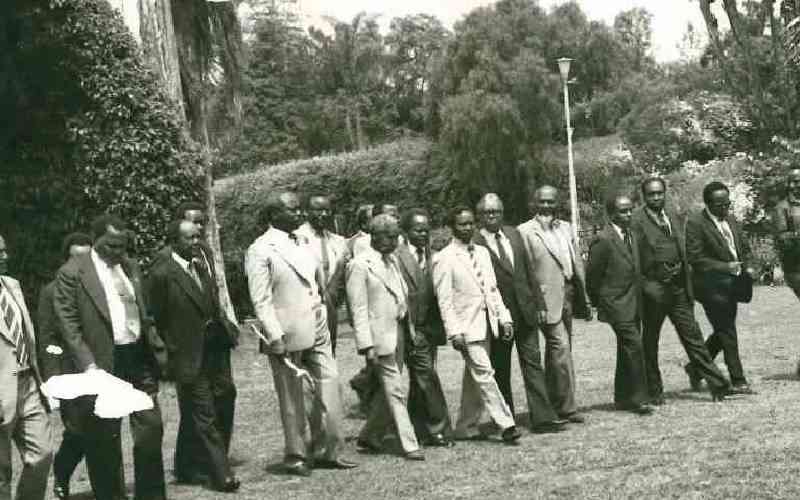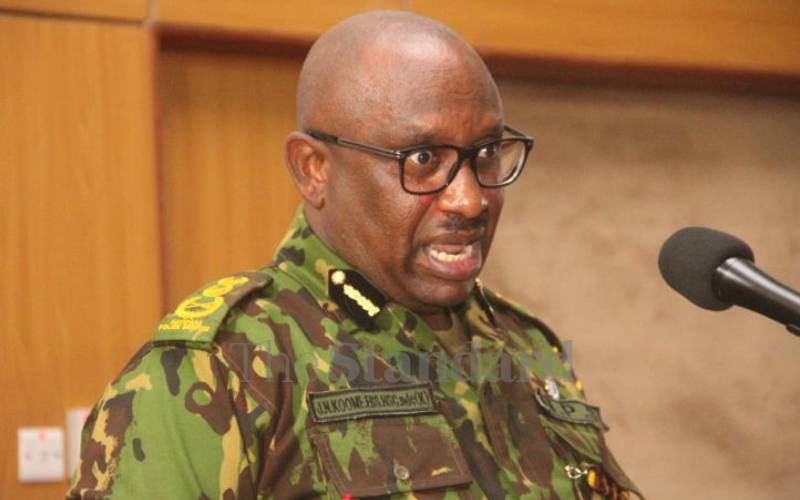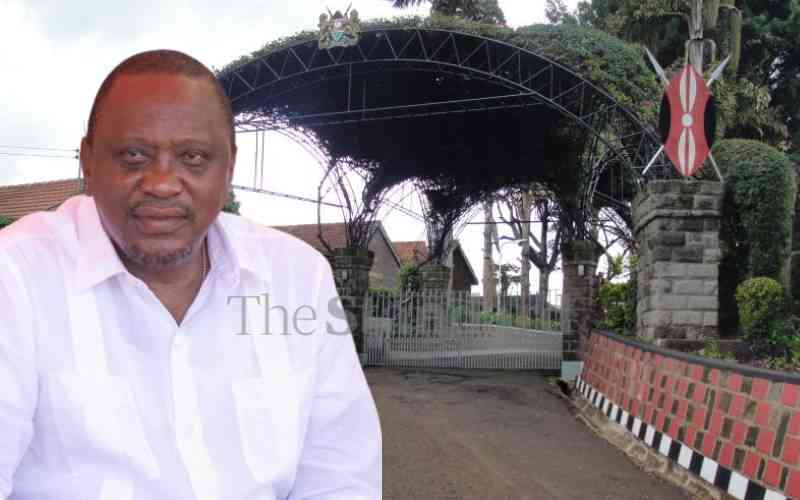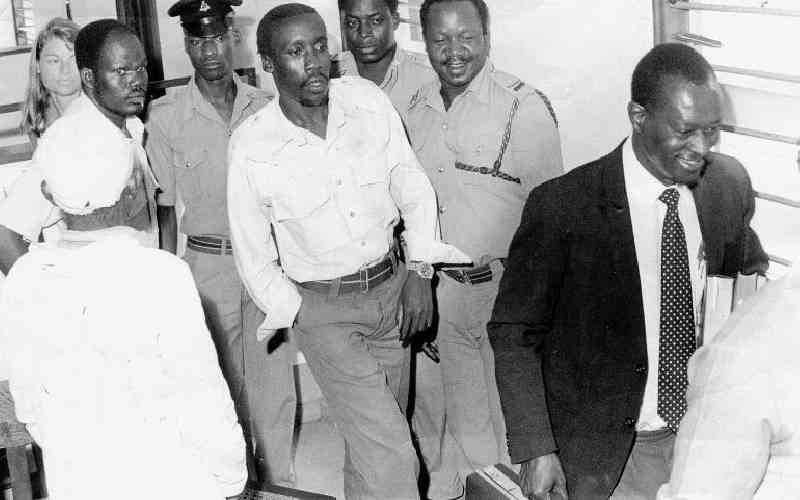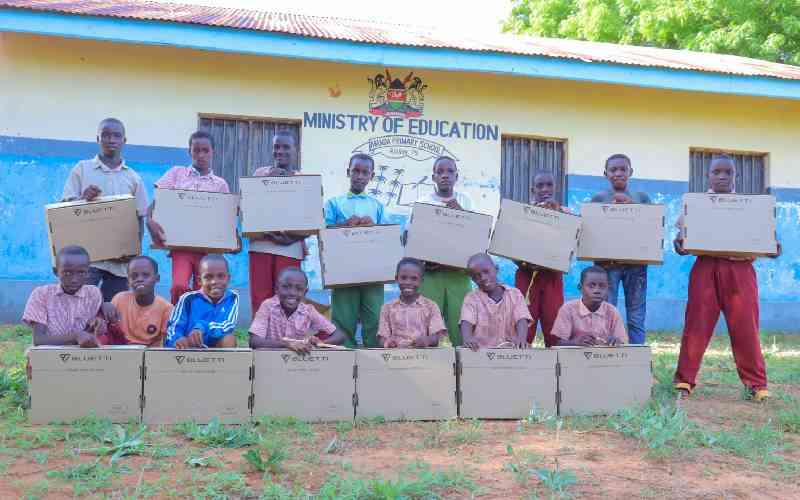Some 38 years ago, the tranquil of our nation was disrupted by the attempted coup of August 1982. I was personally woken up in the wee hours of Sunday August 1, by the sound of gunshots not too far from our University of Nairobi halls of residence.
The life of the nation was temporarily brought to a standstill, as a group of Kenya Airforce soldiers took control of the Eastleigh Airbase and the Voice of Kenya broadcasting station. Thankfully, by about 10am, the forces and been repulsed and a sense of normalcy restored. But for us students, life was never to be the same again.
There was a general belief within government circles that university students were directly involved in the planning and/or execution of the coup attempt.
In particular, the student leader, Titus Adungosi, was strongly believed to have been working in cahoots with the coup plotters – a matter that I have strong reasons to believe was certainly not true.
Adungosi was a born again Christian and had been singularly nominated to vie for the Student Organisation of Nairobi University (Sonu) chairmanship by the Christian Union (CU) members.
It was the first time that Christians deliberately and directly engaged in university student politics. This was mainly because we had become tired of frequent riots and closures – most times over flimsy issues. And for a fact, during Adungosi reign, the university enjoyed an unusual period of peace and rest.
As a Christian and a “CU candidate”, Adungosi made it a point never to take any decisions without confiding in the CU leadership and seeking their counsel and prayers. As CU chairman, I worked and walked very closely with him and found him a simple, honest and very forthright man.
Thus, it would have been very unusual for him to be part of such a major issue – planning a coup – and yet not confide in his Christian leaders. Though possible, it was not just his style. Unfortunately, Adungosi was arrested, swiftly taken to court, and given a 10-year jail term. Sadly, he died in prison – a death he certainly did not deserve.
Meanwhile, the university was closed, and all students ordered to go back to our village homes – even if you were born in Nairobi. We were required to report to the local chief twice a week. At first it was fun, meeting comrades at the Chief’s camp biweekly.
But soon, days turned into weeks, weeks into months, and before we knew it, the months turned into a year. All this time, life moved on without a single mention of the university and its students. By the time our salvation came, we had been home for 13 months – a full academic year and more gone.
Though theoretically the lost 1982 university academic year affected only those of us in the university at the time, its impact disrupted the whole education calendar of the nation.
The resulting backlog of student intake meant that high school leavers had to wait almost two years before they could join a local public university.
To try and resolve this, there was introduced the infamous double intake at some point. But even then, the effect of that closure has never been fully cured to date.
Consequently, those who wait to join public universities get left behind by their counterparts who join private or international universities.
This memory was rekindled by the inadvertent disruption of our education sector by Covid-19 pandemic. The possible loss of the 2020 academic year strikes the dark chord of 1982.
Stay informed. Subscribe to our newsletter
Though in the current scenario, Covid-19 is a global pandemic and is largely outside of our control, its impact on the academic calendar may be just as devastating, if not worse.
That is why one wishes that there was a way we could navigate its disruptive waves and land our students safely yonder.
Many pundits have made some very plausible proposals that may be worth exploring. It sounds like it may be possible to have the KCPE and KCSE candidates resume earlier and take their exams later this year or early next year.
The rest of the children can then use the early part of 2021 catching up with the 2020 syllabus. The rest of the year can then be used to cover the 2021 syllabus.
Since many schools are known to cover the syllabus quite early in the year – especially for candidate classes – it is possible that with some restructuring and coordinated effort, we can beat this Covid-19 imposed disruption and restore our academic calendar. With the current innovative spirit, it may be worth a try.
[email protected]
 The Standard Group Plc is a
multi-media organization with investments in media platforms spanning newspaper
print operations, television, radio broadcasting, digital and online services. The
Standard Group is recognized as a leading multi-media house in Kenya with a key
influence in matters of national and international interest.
The Standard Group Plc is a
multi-media organization with investments in media platforms spanning newspaper
print operations, television, radio broadcasting, digital and online services. The
Standard Group is recognized as a leading multi-media house in Kenya with a key
influence in matters of national and international interest.
 The Standard Group Plc is a
multi-media organization with investments in media platforms spanning newspaper
print operations, television, radio broadcasting, digital and online services. The
Standard Group is recognized as a leading multi-media house in Kenya with a key
influence in matters of national and international interest.
The Standard Group Plc is a
multi-media organization with investments in media platforms spanning newspaper
print operations, television, radio broadcasting, digital and online services. The
Standard Group is recognized as a leading multi-media house in Kenya with a key
influence in matters of national and international interest.

